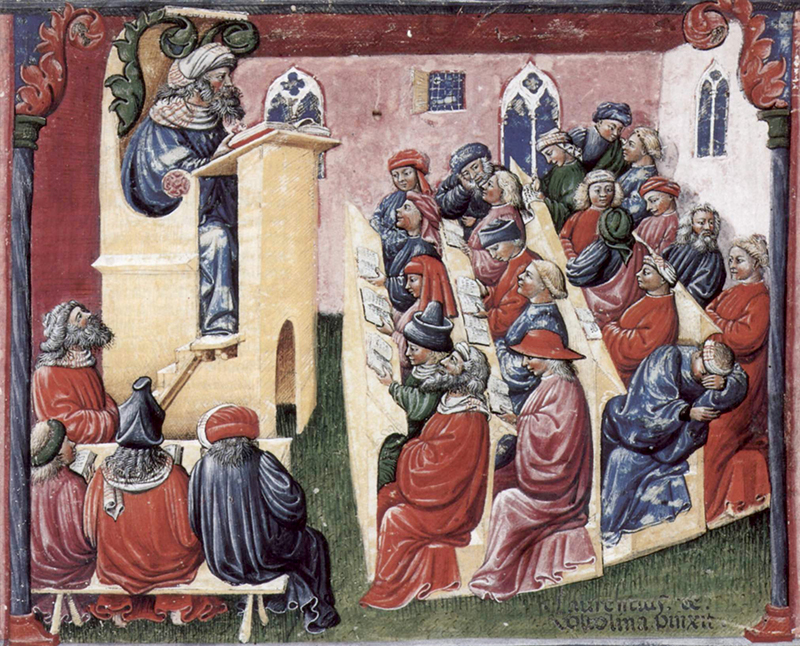
Requiem for students
(Translated by Baris Cayli Messina from Italian to English)
As we had anticipated, lectures in universities will be held online next year. For a careful observer, this was not surprising, and the so-called pandemic would be used as a pretext for the diffusion of increasingly pervasive digital technology, which has been realised precisely with this transformation.
In this regard, we’re not interested in the consequent transformation of teaching, in which the element of physical presence has always been important for the relationship between students and teachers. Yet, this relationship disappears definitively with the erosion of collective discussions in seminars that used to be the most vital part of teaching. This constitutes technological barbarism as we are facing with the obliteration of life and its every experience gained by our senses, and the loss of the gaze that is all enduringly imprisoned in a ghostly screen.
In a more decisive way what is unfolding is something which is not debated significantly, and that is the termination of the state of being a student as a form of life. Universities were born in Europe thanks to student associations –univesitates– and the universities, today, owe their names to students. First of all, being a student was a form of life, in which studying and attending lessons determined this form. However, it was not less important meetings and constant exchanges with other scholars, who frequently came from remote places and reunited based on the origin of place where they came from. This form of life has been evolved constantly in various modes over centuries and included different groups from the clerici vagantes (wandering clergy) of the middle ages to the student movements of the twentieth century, which was the social dimension of the phenomenon. Anyone, who has taught in a university lecture hall, knows very well how friendships were formed before their eyes according to cultural and political interests in a small study or research group and how they continued to meet even after the end of those lectures and group works.

All this process has lasted for nearly ten centuries and now it ends indefinitely. Students will no longer live in the city where the university is located, but each of them will attend lectures remotely in a closed room, sometimes separated by hundreds of kilometres away from former classmates. Small cities, once prestigious university locations, hosted student communities who often made up the liveliest part of those cities and now the cities will witness the disappearance of those student communities from the streets.
It can be said for every eroded social phenomenon that, in some ways, they deserved such eradication. And it is obvious that our universities had reached such a level of corruption and specialist ignorance that it is not possible to regret their current situation and the form of student life was, consequently, impoverished. Two points, however, must remain firmly:
1) The professors who accept – as they are doing en masse – to submit to the new online dictatorship and to deliver their courses only online are the perfect equivalent of the university teachers swore allegiance to the fascist regime in 1931. As it happened at that time, it is probable that only fifteen out of a thousand will refuse, but, certainly, their names will be remembered alongside those of the fifteen teachers who did not swear to the fascist regime.
2) Students, who really love studying, will have to refuse to enrol in universities transformed in this way and, similar to the original form of universities, they will have to constitute new universitates. In the face of technological barbarism, the word of the past can remain alive and be born within these new universitates, -if it is born-, something like a new culture.
Note: The original article was first published on the website of Istituto Italiano per gli Studi Filosofici. SGOC is grateful to Giorgio Agamben and IISF for the permission to publish the English version of the article.

